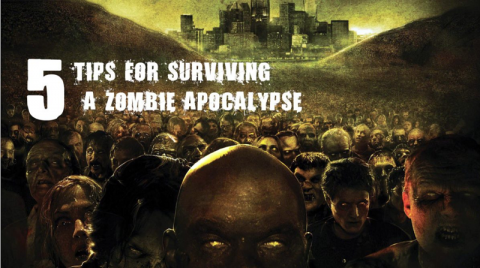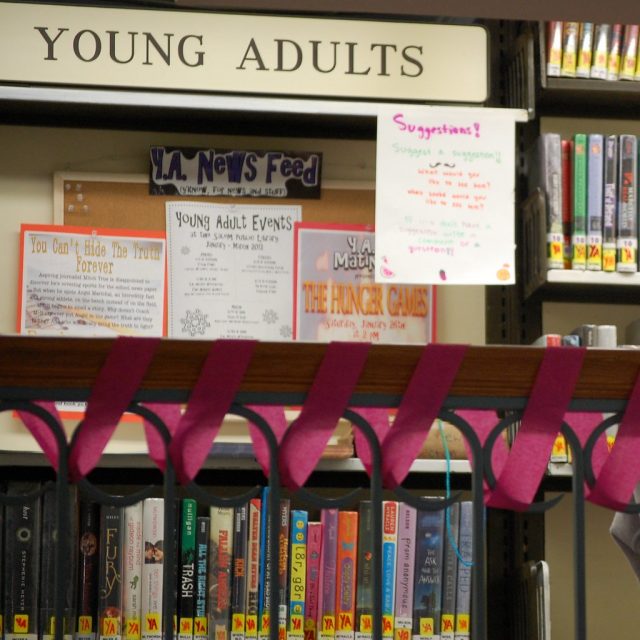It is very natural for young men to be vehement, acrimonious and severe. For as they seldom comprehend at once all the consequences of a position, or perceive the difficulties by which cooler and more experienced reasoners are restrained from confidence, they form their conclusions with great precipitance. Seeing nothing that can darken or embarrass the question, they expect to find their own opinion universally prevalent, and are inclined to impute uncertainty and hesitation to want of honesty, rather than of knowledge.
Samuel Johnson, The Rambler No. 121, 1751-05-14.
June 24, 2020
QotD: Youthful opinions
June 12, 2020
June 7, 2020
QotD: The American education system
[A]ll levels of our education system are extremely wasteful and ineffective. After spending more than a decade in class and burning up over $100,000 in taxpayer money, most Americans know shockingly little. About a third of adults are barely literate or numerate. Average adult knowledge of the other standard academic requirements — history, social studies, science, foreign languages — is near-zero. The average adult with a B.A. has the knowledge base you’d intuitively expect of the average high school graduate. The average high school graduate has the knowledge base you’d intuitively expect of the average drop-out. This is the fruit of a trillion taxpayer dollars a year.
Bryan Caplan, “Is Education Worth It? My Opening Statement for the Caplan-Hanushek Debate”, The Library of Economics and Liberty, 2018-02-19.
June 6, 2020
QotD: The Fountainhead
Like most of my contemporaries, I first read The Fountainhead when I was 18 years old. I loved it. I too missed the point. I thought it was a book about a strong-willed architect … and his love life … I deliberately skipped over all the passages about egoism and altruism. And I spent the next year hoping I would meet a gaunt, orange-haired architect who would rape me. Or failing that, an architect who would rape me. Or failing that, an architect. I am certain that The Fountainhead did a great deal more for architects than Architectural Forum ever dreamed.
Nora Ephron, The New York Times Book Review (1968), quoted in Reason Online
May 2, 2020
May 1, 2020
The Scottish Sentencing Council recommends that no under-25s be sent to prison
Theodore Dalrymple isn’t impressed with this proposal:

A judges’s wig and advocate’s wig on temporary display in Parliament Hall, Edinburgh, 26 October 2013.
Photo by Kim Traynor via Wikimedia Commons.
Just as one begins to imagine that the liberal pseudo-conscience can go no further in foolishness, it comes up with new schemes to make the world a little worse. Its inventiveness, in fact, is infinite, and no victory over it by common sense is ever more than temporary. The price of sanity, at least in the modern world, is eternal vigilance.
This is not to say, of course, that no liberal reform in the past was ever justified or did no good, or that none will ever do any good in the future. It is simply that, as a matter of contingent sociological fact, many liberals seem to have lost their minds.
The Scottish Sentencing Council, an advisory body with no legislative powers but whose recommendations judges disregard at their peril, put forward a proposal earlier this year that those under the age of 25 should not be sent to prison because research shows that their brains have not yet fully matured. It is difficult to know where to begin in arguing with this fatuity.
Let us then start with the notion that no man under 25 is sufficiently mature to know that it is wrong to strangle old ladies in their beds and the further proposition that, until that age, they are unable to control their impulse to do so.
[…]
The idea that a man’s brain is so immature before age 25 that he does not know that all manner of crimes are wrong would suggest a revision of our electoral laws, for if a man can neither distinguish right from wrong nor control his impulses, should he have the vote? Should he, in fact, be considered of legal age? Should he be allowed even to choose his own career? I doubt that the Sentencing Council would preen itself on the corollaries of its proposal.
There is, of course, an element of truth in what the Sentencing Council says. Our characters are not fully formed by the age of 25 — mine certainly wasn’t. It is true also that there is a biological component to crime, inasmuch as the vast majority of criminals in all societies in which crime is a category of behaviour are young and male. The rate at which even recidivist criminals commit crimes declines with age and most often reaches zero. Time is the great therapist.
But punishment is not therapy. It is a very good thing, of course, if punishment (such as imprisonment) reforms the criminal, and I think that it is a moral obligation of the state, if it is to lock up people, to try to give them something purposeful and worthwhile to do. But that is not the primary purpose of punishment. If it could be shown that rewarding criminals with large fortunes would change their behaviour — as almost certainly it would in most cases — we should not advocate such a course, even if it were a better way of reforming them in the sense of reducing their recidivism rate.
QotD: Cynicism
Somewhere around that same eighth-grade mark where we all experimented with being mean, we get the idea that believing in things makes you a sucker — that good art is the stuff that reveals how shoddy and grasping people are, that good politics is cynical, that “realism” means accepting how rotten everything is to the core.
The cynics aren’t exactly wrong; there is a lot of shoddy, grasping, rottenness in the world. But cynicism is radically incomplete. Early modernist critics used to complain about the sanitized unreality of “nice” books with no bathrooms. The great modernist mistake was to decide that if books without sewers were unrealistic, “reality” must be the sewers. This was a greater error than the one it aimed to correct. In fact, human beings are often splendid, the world is often glorious, and nature, red in tooth and claw, also invented kindness, charity and love. Believe in that.
Megan McArdle, “After 45 Birthdays, Here Are ’12 Rules for Life'”, Bloomberg View, 2018-01-30.
March 16, 2020
Cognitive dissonance, family style
Severian has some fun discussing current events with a nephew:

Image from Castle of Chaos – https://castleofchaos.com/blog/5-tips-for-surviving-a-zombie-apocalypse/
Just recently I had some fun with one of my nephews, who’s unexpectedly home for “Spring Break.”
Let’s take this Wuhan Flu thing seriously, I said. But since that hits a little too close to home, let’s pretend it’s a zombie outbreak. I want you to take it 100% seriously. The zombie virus has made it to our shores. It’s not too bad yet, but there’s definitely a walking dead situation. So … what do you want the government to do?
Nephew of course starts rattling off all the Chuck Norris fantasies young college guys have. Close the ports, call out the army, firebomb the streets wherever infected are sighted, yadda yadda. All of this is translated from the teenager, but you get the gist of it:
Me: Ok. Now, since we’ve stipulated that we’re taking this 100% seriously: Do you really want to give the government the power to do all that?
Nephew: Of course!
Me: Ok. Well then, do you really want to give Donald Trump the power to do that?
Nephew: Oh my god no!!! Orange Man bad!!!
Me: Now wait a minute, Nephew. You just said you’re taking this 100% seriously. You just said you want the government to have the power to set up flamethrower checkpoints on all major roads. Well, who is the current head of the government?
Nephew: But … but … but … Orange Man BAD!!!!
Me: Remember, Nephew, you promised to take this 100% seriously. So are you seriously telling me that the first thing you’d do, in the event of the zombie outbreak, is call an emergency presidential election, in the hopes that someone — Joe Biden, Bernie Sanders, Tulsi Gabbard, somebody — would win, so that the right kind of person could take all those measures you said were so very, very, very immediately necessary?
Nephew: Uhhhh … no, I guess not.
Me: So you do want to give Donald Trump that power, since he is, in fact, the current head of the United States government?
Nephew: Oh my god no! Orange Man BAAAAAAADDDD!!!!
Me: Well then I guess you’re just not serious about this zombie outbreak, are you?
February 12, 2020
Rebecca Black, nine years after the release of “Friday”
CNN‘s Scottie Andrew talked to Rebecca Black about her experiences and the reactions to her debut video:
Partyin’, partyin’, YEAH! “Friday,” the accidental anthem of 2011 and an ode to the best day of the week, is officially nine years old.
It became something of a national joke when it debuted. But to a then-13-year-old Rebecca Black, the single’s star, the jokes made at her expense were immensely damaging.
Black, now 22 but still a pop singer, is remarkably well-adjusted for someone whose life was upended by a music video. She marked the 9th anniversary of the song that started it all with a note to her younger self — and advice for her followers to love themselves a little better.
[…]
Black was only in middle school when she filmed the infamous video. She paid a company called Ark Music Factory to write her a song and film a music video for it, starring her and her friends.
It’s not an artistic achievement, but it’s fitting for the young star at its center. In it, Black sways and sings her way through a Friday — she wakes up, she eats cereal, she can’t decide which seat in a convertible to take. Typical teen stuff.
The negative comments rolled in almost immediately, and nearly all of them lambasted Black.
At the time, I linked to a couple of deconstructions of the video that amused me. One was from The Awl:
She offers the camera a hostage’s smile, forced, false. Her smoky eyes suggest chaos witnessed: tear gas, rock missiles and gasoline flames. They paint her as a refugee of a teen culture whose capacity for real subversion was bludgeoned away somewhere between the atrocities of Kent State and those of the 1968 Democratic Convention, the start of a creeping zombification that would see youthful dissent packaged and sold alongside Pez and Doritos.
“Look and listen deeply,” she challenges. An onanistic recursion, at once Siren and Cassandra, she heralds a new chapter in the Homeric tradition. With a slight grin, she calls out to us: “I sing of the death of the individual, the dire plight of free will and the awful barricades daily built inside the minds of all who endure what lately passes for American life. And here I shall tell you of what I have done in order to feel alive again.”
***Ms. Black first appears as her own computer-generated outline: wobbly, marginal, a dislocated erasure. The days of the week flip by accompanied by dull obligations — “essay due” — and tired clichés — “Just another manic Monday …” Her non-being threatens to be consumed by this virtual litany of nothing at all until, at long last — Friday.
[…]
Yet here the discerning viewer notes that something is wrong. Because it is a simple matter of fact that in this car all the good seats have already been taken. For Rebecca Black (her name here would seem to evoke Rosa Parks, a mirroring that will only gain in significance) there is no actual choice, only the illusion of choice.
The viewer knows that she’ll take the only seat that’s offered to her, a position so very undesirable as to be known by a derisive — the “Bitch” seat.
She might well have been better off on the school bus, among the have-nots. But Rebecca Black’s world is so advanced in the craft of evisceration that this was never a consideration. John Hughes died while out jogging, these are the progeny of his great materialist teen-villain, James Spader, a name that would come to be synonymous with desperate sex and high-speed collision. And as she gets in the car Ms. Black’s joy is as patently empty as her liberation.
“Partying, Partying,” she sings, in hollow mantra.
“Yeah!” an unseen mass replies, a Pavlovian affirmation.
The other was from Jeffrey Tucker in the Christian Science Monitor:
Far more significant is the underlying celebration of liberation that the day Friday represents. The kids featured in the video are of junior-high age, a time when adulthood is beginning to dawn and, with it, the realization of the captive state that the public school represents.
From the time that children are first institutionalized in these tax-funded cement structures, they are told the rules. Show up, obey the rules, accept the grades you are given, and never even think of escaping until you hear the bell. If you do escape, even peacefully of your own choice, you will be declared “truant,” which is the intentional and unauthorized absence from compulsory school.
This prison-like environment runs from Monday through Friday, from 8 a.m. to late afternoon, for at least ten years of every child’s life. It’s been called the “twelve-year sentence” for good reason. At some point, every kid in public school gains consciousness of the strange reality. You can acquiesce as the civic order demands, or you can protest and be declared a bum and a loser by society.
“Friday” beautifully illustrates the sheer banality of a life spent in this prison-like system, and the prospect of liberation that the weekend means. Partying, in this case, is just another word for freedom from state authority.
The largest segment of the video then deals with what this window of liberty, the weekend, means in the life of someone otherwise ensnared in a thicket of statism. Keep in mind here that the celebration of Friday in this context means more than it would for a worker in a factory, for example: for the worker is free to come and go, to apply for a job or quit, to negotiate terms of a contract, or whatever. All of this is denied to the kid in public school.
January 20, 2020
QotD: Maturity and wisdom
He wondered if it was at all possible to give this idiot some lessons in basic politics. That was always the dream, wasn’t it? “I wish I’d known then what I know now”? But when you got older you found out that you now wasn’t you then. You then was a twerp. You then was what you had to be to start out on the rocky road of becoming you now, and one of the rocky patches on that road was being a twerp.
Terry Pratchett, Night Watch, 2002.
December 17, 2019
“Oh, shut-up. Pound sand, you scowling urchin”
I don’t often find myself nodding along with Kurt Schlicter‘s writings, but I have to agree that Greta Thunberg’s fifteen minutes must surely be up by now?
Clearly Greta Thunberg is being exploited by her cynical puppetmasters, but equally clearly she’s a tiresome, bizarre Marxist scold whose exploitation of the hapless dummies who buy into the climate change hoax is part of what is an increasingly violent plot to undermine capitalism and freedom. Recently, the cretins at TIME, which shockingly still exists in 2019, named her “Person of the Year.” That’s appropriate, since 2019 has been a very annoying year.
In 2029, after the world hasn’t ended but her usefulness has, she’ll be a Jeopardy question and probably shacked up with an unemployed performance artist named Björn in an Oslo suburb. Fun fact: “Greta Thunberg” is Swedish for “Cindy Sheenhan.”
But today, we’re all supposed to fall over ourselves over Pippi Longnagging – at least that’s what our betters command – yet it’s unclear why. Teenagers are notoriously ignorant, and ones spewing recycled Marxism are the worst of all. But the idea is not that this tiresome truant is some visionary thinker. The idea is to leverage her youth and awkwardness to keep you from speaking the indisputable truth that she’s a weird brat who presses for an ideology that butchered 100 million people in the last century. And now, she is hinting she wants to run up that score.
Trump mocked her and a zillion pearls were clutched. How dare you … criticize the Luddite pest who presumes to tell you how to live, leveraging the full benefit of her nearly 17 years of experience to explain to you how stuff should be. How dare you!
Oh, shut-up. Pound sand, you scowling urchin.
The kid is a fanatic, and though that’s no fault of her own – she’s a victim of her pinko exploiters – she is still spewing bloodstained poison.
Bloodstained poison, really? Isn’t she just a nice Eastern Norwegian who wants a better world with love and hugging? Or is she yet another aspiring fanatic ready to kill for the kreepy kommie climate kult?
The other day, this malignant muppet “told cheering protesters … ‘we will make sure we put world leaders against the wall’ if they fail to take urgent action on climate change.” Now, maybe her English is bad, or maybe she’s just ignorant, but then again the murder of opponents is the Marxist way.
December 15, 2019
From “mascupathy” to “toxic masculinity”
Suzanne Venker on the well-aired notion that males are suffering from “toxic masculinity”, and must be “cured” by being more like females:

“End Toxic Masculinity” by labnusantara is licensed under CC BY-NC-ND 2.0
I’ve always been fascinated at the ease with which specious ideas spread. One day you’re living your life, and unbeknownst to you, someone who holds a reasonable measure of power has an idea based on his or her “research.” That person tells someone else, and then that person tells someone else, and the next thing you know, this new idea has spread like wildfire and people everywhere who are clamoring for answers to complex problems jump on board and say, “Yes, that’s it! That must be it!” All of a sudden, you start reading and hearing about it in the news. An idea has been born. It is now a fact.
That’s how I imagine we arrived at the bogus concept known as “toxic masculinity,” which was apparently deemed “mascupathy” 10 years go by psychotherapist Randy Flood. Mascupathy, Flood and his colleagues decided, is the failure of a man to shed his traditional manly ways. At that point, he officially has a disease.
“We just believe,” writes Flood in Mascupathy: Understanding and Healing The Malaise of American Manhood, “that there is a disease process that goes on when we raise boys to cut off half of their humanity in order to pursue the pinnacle of masculinity.”
This is the conclusion some, such as Flood, have come to for why men and boys are struggling:
Women are graduating from college at higher levels. the male suicide rate is four times that of women, men have a harder time moving out of their parents’ homes than women. There are so many statistics that are telling us that men are struggling. Ninety-eight percent of mass shooters are men, but when there is a shooting we don’t talk about men’s mental health.
Actually, many people have addressed men’s mental health. We simply didn’t arrive at the same conclusion. Men and boys aren’t suffering from an overdose of masculinity; they’re suffering from a dearth of masculinity.
How could it be the former when millions of boys come from fatherless homes and when most boys are products of public schools, where only 23% of teachers are male? Single motherhood has skyrocketed over the last five decades — a whopping 40% increase. Who do we suppose is encouraging boys to “pursue the pinnacle of masculinity”? Their mothers and their female teachers?
Hardly. In schools, girls have the upper hand while boys go along for the ride. Their interests and their innate aggression were stifled the moment we got rid of recess and told boys to sit still and read books centered on women and girls. At home, boys of single mothers are largely responsible for themselves, which is why so many get into trouble. To the extent that single mothers are home, they may be very good at mothering. But they can’t be a father.
December 2, 2019
A bad IDEA for classroom peace
In Quillette, Max Eden discusses the rise of “room clears” as teachers resort to evacuating classrooms to prevent harm to students from one disruptive one:
Last month, NBC Nightly News aired a segment on the latest classroom-management technique to sweep America’s schools: “room clears”: When a child throws a tantrum that could physically endanger his peers, teachers evacuate all of the other students from the classroom until the troublemaker has vented his rage upon empty desks, tables and chairs. The technique was virtually unheard of five years ago. But 56 percent of surveyed teachers and parents in Oregon now report having experienced a room clear in their or their child’s classroom over the last year.
Surrendering the classroom to a single student: The average reader might well ask why anyone thinks this would be a good idea. Yet the policies that make this approach inevitable have been applauded by a wide range of authorities, from the Southern Poverty Law Center to the Trump-administration’s Department of Education.
The emergence of room clears is a product of several fashionable education-policy trends designed to protect the rights of troubled students, often with little regard for the rights of their classmates. These include the provisions contained in the federal Individuals with Disabilities Education Act (IDEA), which mandates that special-education students be subject to the “least restrictive environment” possible. When it comes to students who are hard of hearing, dyslexic or developmentally delayed, this policy likely has done a great deal of good. But many schools also label disruptive or violent students as having an “Emotional and Behavioral Disability” (EBD). Rather than provide these students specialized attention in separate settings, schools often funnel them into traditional classrooms.
In a national poll, two thirds of surveyed teachers at high-poverty schools reported that there is a student in their classroom who they believed shouldn’t be there; and 77 percent of surveyed teachers report that a small number of disruptive students cause other students to suffer. Unfortunately, IDEA’s provisions don’t adequately account for the rights and interests of general-education students, and teachers typically have little say over who is in their classroom.
Once they are assigned to a traditional class, EBD students can become virtually untouchable as far as discipline goes. Schools are discouraged by federal policy and activist groups alike from disproportionately disciplining students with disabilities — the effect of which is that principals are required to overlook many otherwise unacceptable transgressions. (Two thirds of teachers say that special-education students are treated more leniently than general-education students for the same offenses.) The worst-behaved students effectively are taught that the rules don’t apply to them in the same way they apply to others. Even when misbehavior edges toward violence, EBD students are becoming physically untouchable.
October 28, 2019
The demonstrated need for “Clean Teen” fiction in the YA section
You don’t need to be a Bible-thumping traditionalist to be alarmed at what publishers are pushing into the Young Adult fiction market for teenagers and older pre-teens. There are themes and content choices that many parents would be unwilling to allow younger readers to encounter, but the criticisms are falling on deaf ears, as Megan Fox shows:

“New Spin on YA” by Salem (MA) Public Library is licensed under CC BY-NC-ND 2.0
It’s tough to find a book for pre-teens and teens without graphic sex and violence. The “Young Adult” section, which is marketed to kids from nine to seventeen, is full of stuff most parents would not want their children reading about. Because of it, sites like Common Sense Media, where you can see what kind of content is in the books before you let your kid read them, are very popular with parents. Parents and kids rate the books according to how much violence, sex, drug use, mature themes, and the like are in them. Librarians and the American Library Association are staunchly opposed to anyone categorizing books by content and liken it to censorship. They’re out of their minds. On one hand, they tell parents, “It’s up to you to direct your child’s reading,” but they offer no help in actually doing that by their refusal to mark books that contain adult content. And now that some websites are answering parents’ calls for innocent plotlines by offering “Clean Teen” selections, SJW authors, who think every child should have the sexual knowledge of Caligula, have their panties in a twist about it.
“If they’re named ‘Clean Teen’ novels what are the rest called? ‘Unwashed Teen’ ‘Trash Teen’ ‘Didn’t shower after soccer practice Teen’ ‘Say three Hail Mary’s in confessional Teen?'” said Zorri Cordova, a supposed author.
The far-left weirdos are never satisfied to corrupt their own children, they want your kids too. The American Library Association loves to take potshots at Common Sense Media. “These days, Common Sense Media’s initiatives contain a less than subtle paternalism based on the conviction that its values should control children’s learning experiences,” wrote Joyce Johnston on the ALA’s Intellectual Freedom Blog. They have no problem, however, controlling children’s learning experiences with their far-left values. For a laughable example, check out ALA’s LGBT initiatives.
Publisher’s Weekly wrote about this topic.
Kendra Levin at Simon & Schuster Books for Young Readers observes that “the meaning of ‘clean teen’ can depend on the context, but within publishing houses, I think it’s most often used to describe a buffer zone between middle grade and mature YA — books specifically geared toward the younger end of the teen spectrum. You could also call this young teen and 12-and-up YA, as opposed to 14 and up.
This suggests that 14-year-olds are ready for the Roman orgies and coke parties that are depicted in the majority of YA fiction these days (and yes, I’ve read them). I don’t know what planet these people are living on, but it’s starting to get to me. What is wrong with Little House on the Prairie? Oh yeah, Laura Ingalls Wilder has been branded a racist.
October 15, 2019
QotD: Over-protected children become insecure adults
Kids need conflict, insult, exclusion – they need to experience these things thousands of times when they’re young in order to develop into psychologically mature adults. Every adult has to learn to handle these things and not get upset, especially by minor instances. But in the name of protecting our children we have deprived them of the unsupervised time they need to learn how to navigate conflict among themselves. That is one of the main reasons why kids and even college students today find words, ideas and social situations more intolerable than those same words, ideas and situations would have been for previous generations of students.
Jonathan Haidt, quoted by Naomi Firsht, “The Fragile Generation”, Spiked, 2017-08-31.







